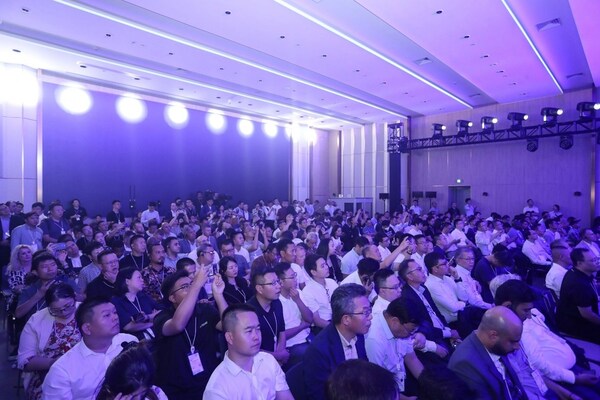SHANGHAI, March 31, 2025 /PRNewswire/ -- The year 2025 marked a watershed moment as DeepSeek's meteoric rise transformed artificial intelligence into a ubiquitous societal force. Under the "DeepSeek Integration" trend, AI-powered applications achieved unprecedented mainstream adoption, embedding advanced technology into daily life while generating tangible economic and social value.
Amid this paradigm shift, pressing questions dominate public discourse: How prevalent is "AI anxiety" among ordinary people? How are younger generations redefining social connectivity through AI-driven networks to secure instant emotional support? And in what ways are individuals leveraging these tools to enhance productivity, launch side ventures, and unlock economic opportunities?
Building on its 2024 Gen Z AIGC Attitudes Report (3,457 respondents), Soul App's Just So Soul Research Institute released the 2025 Gen Z AI Engagement Report, synthesizing insights from 3,680 valid survey responses.
The findings paint a nuanced portrait: approximately 40% of young respondents acknowledge experiencing AI-related anxiety, while over 90% now routinely employ AI for work or academic tasks. Significantly, one-fifth of participants report monetizing AI capabilities, and over 70% express openness to forming friendships with AI personas, with Gen Z averaging 1.8 virtual companions. Defying concerns about digital isolation, over 80% credit AI with facilitating real-world relationship building.
Living with Algorithms: Gen Z and Post-05s Redefine Tech Engagement
British sci-fi author Douglas Adams' "Three Laws of Technology"—which posits that innovations emerging during one's formative years (15-35) are perceived as revolutionary—finds vivid validation in Gen Z. The cohort's AI literacy has surged exponentially, with 23.8% now claiming advanced understanding (including professionals, researchers, and power users), a sevenfold increase from 3.53% in 2024.
Young users prioritize four core applications: productivity enhancement (55.6%), creative ideation (39%), entertainment, such as emotional companionship, via virtual interactions (38.9%), and social facilitation through AI-generated response recommendations (32.8%).
Nearly all respondents (95%) integrate AI into work or study routines, with 55.4% classified as frequent users. A clear age gradient emerges, showing younger cohorts adopting AI more intensively.
Efficiency gains have been proved substantial: nearly 80% report over 50% productivity improvements, including 30.8% claiming near-total efficiency doubling, while a mere 3.6% perceive negligible benefits.
AI Social Paradox: Gen Z Builds Real-World Ties with the Help of AI
The once-futuristic premise of human-AI emotional bonds—poignantly depicted in the 2013 film Her—now permeates reality. The survey reveals that nearly 40% of young people use AI products daily for emotional companionship.
Specifically, 22.1% use them multiple times a day, while 20.8% use them once a day. Only 5.5% show no interest in such products. Contrary to the stereotype that women rely more on AI for emotional support, the data shows that men are more frequent users, with 45.6% of men compared to 37.2% of women.
This trend is driven by two factors. First, the decline of traditional social connections due to social atomization has led young people to turn to AI as a low-threshold solution for building social networks. Second, advancements in AI's reasoning, perception, and interaction capabilities have enabled more natural and human-like emotional interactions, providing real emotional feedback and support.
The survey found that 71.1% of young people are willing to befriend AI, compared to 32.8% in the 2024 Gen Z AIGC Attitudes Report. Over 60% of respondents have interacted with virtual companions, with an average of 1.8 AI friends per person. Among them, 26% believe AI fully meets their emotional needs, 45.7% feel it meets their needs to some extent, and only 5.9% think it does not meet their needs at all.
Notably, as public acceptance of human-machine interaction has increased, discussions about AI-induced virtual relationship addiction have become more frequent.
However, young people view AI social interactions as a powerful tool for enhancing real-life relationships. Over 80% of respondents have established real relationships with the help of AI, primarily through AI-generated responses that facilitate conversations (43.6%), AI-provided topic suggestions and emotional support (39.9%), and AI matching people with mutual interests (37.7%).
Anxiety and Adaptation: Nearly 40% Experience "AI Anxiety," with 20% Earning from AI
The survey indicates that nearly 40% of young people experience anxiety related to AI. Specifically, 13.5% report frequent anxiety, while 23.2% experience occasional anxiety. In contrast, 36.8% are not very anxious, and 26.5% are not anxious at all. College students show the highest levels of AI anxiety, likely due to concerns about job market uncertainties.
The main sources of anxiety include the proliferation of false information (37.1%), threats to privacy and data security (37%), the rapid pace of AI development (33%), and job displacement fears (28.6%).
Those less anxious view AI as a useful tool for improving efficiency (46.8%), recognize its limitations in creativity and emotion (36.7%), see it as a source of new opportunities (32.9%), and are actively learning AI to stay competitive (29.6%).
The survey also shows that 59.2% believe AI will create new professions, and 22.4% think AI is helpful for launching side ventures. Notably, 19.9% have already earned money through AI, up from 14.18% in 2024.
Young people are actively learning AI to mitigate anxiety and seize new opportunities. As more benefit from AI, both financially and emotionally, its sustainable development is ensured.












